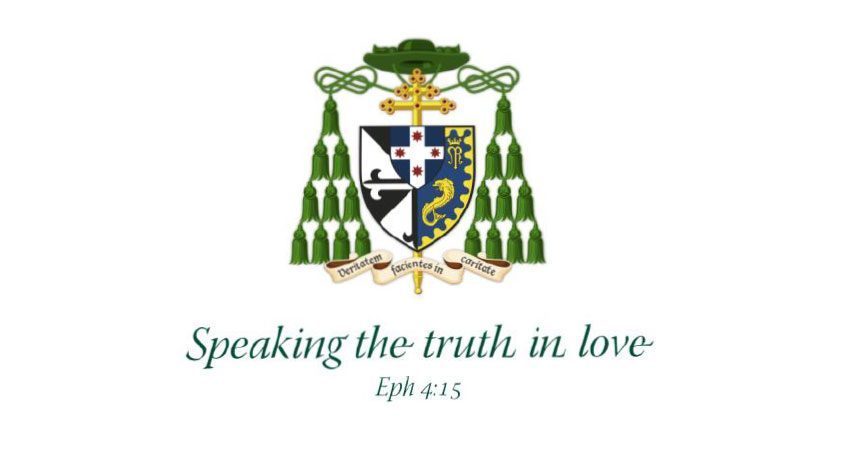In the name of the Archdiocese of Sydney, the Reverend Father Anthony L’Estrange Robbie, the duly appointed Postulator for the Cause of Beatification and Canonization of the Servant of God Eileen Rosaline O ‘Connor


In the name of the Archdiocese of Sydney, the Reverend Father Anthony L’Estrange Robbie, the duly appointed Postulator for the Cause of Beatification and Canonization of the Servant of God Eileen Rosaline O ‘Connor

I offer my sincere congratulations to Bishop Anthony Randazzo on his appointment by the Holy Father, Pope Francis, as the fourth Bishop of the Diocese of Broken Bay

The 13th century was a great one for saints. There were some exotics such as Isfrid of Ratzeburg, Artaldus of Savoy, Engelbert of Cologne, Adolf of Osnabrück,

The Story of Dives and Lazarus from the Codex Aureus of Echternach (c.1035)Jesus can be cryptic. He speaks in parables, the point of which is often unclear.

Thank-you Meredith. Might I begin by repeating my thanks to Dr Peirson and all at New College for the honour they do me

Today is a very dark day for New South Wales. The new abortion law is a defeat for humanity.The Abortion Law Reform Act 2019 may be the worst law passed in New South Wales in modern times, because it represents such a dramatic

Thank-you Meredith. Might I begin by repeating for those who weren’t here last night my thanks to Dr Peirson and all

Thank-you Meredith. Might I begin by thanking Dr Peirson and all at New College for inviting me to join in conversation with my friend Archbishop Glenn Davies for this year’s New College

It’s a puzzling parable that one (Lk 16:1-13): Jesus seems to be praising a manager whose under investigation for misconduct including waste or embezzlement …

Iustitia or Lady Justice was the ancient Roman personification of justice, whom the Emperor Augustus elevated to a goddess and gave a temple in Rome.